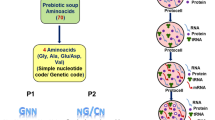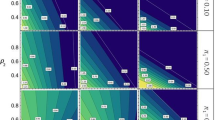Abstract
Modern genetics research increasingly reveals that what is commonly termed Mendelian genetics occurs rarely in nature, especially with regard to the effects that genetic variation exerts on human characteristics. It has been argued that an inappropriate emphasis on Mendel’s work could distort the public understanding of genetics and indeed in the UK Mendel has been completely dropped from the official school syllabus. There is a widespread misunderstanding that Mendel studied common phenotypes such as height and colour in individual pea plants. In fact, he studied a handful of specially selected phenotypes which he observed to be always dichotomous in 22 specially bred varieties of pea and studied crosses between individuals from these different varieties. This approach enabled him to study a small number of phenotypes which did in fact exhibit truly Mendelian transmission. Modern molecular genetic studies have now demonstrated that these phenotypes result from loss of function variants which result in markedly reduced activity of specific proteins and which hence have recessive effects. Understanding that Mendel studied the effects of loss of function mutations in crosses between artificially bred varieties, rather than naturally occurring variation in a population, could allow his work to continue to be taught as part of a modern genetics curriculum.
Similar content being viewed by others
References
Abbott S. and Fairbanks D. J. 2016 Experiments on plant hybrids by Gregor Mendel. Genetics 204, 407–422.
Armstead I., Donnison I., Aubry S., Harper J., Hörtensteiner S., James C. et al. 2007 Cross-species identification of Mendel’s I locus. Science 315, 73.
Bapty H. 2022 Must introductory genetics start with Mendel? : lessons from two unsuccessful attempts to revise the genetics curriculum. Sci. Edu. (Dordr) 1–32.
Bhattacharyya M. K., Smith A. M., Ellis T. H. N., Hedley C. and Martin C. 1990 The wrinkled-seed character of pea described by Mendel is caused by a transposon-like insertion in a gene encoding starch-branching enzyme. Cell 60, 115–122.
Ellis T. H. N., Hofer J. M. I., Swain M. T. and van Dijk P. J. 2019 Mendel’s pea crosses: varieties, traits and statistics. Hereditas 156(1).
Hellens R. P., Moreau C., Lin-Wang K., Schwinn K. E., Thomson S. J., Fiers M. W. E. J. et al. 2010 Identification of Mendel’s white flower character. PLoS One 5, e0013230.
Kampourakis K. 2021 Should we give peas a chance? An argument for a Mendel-free biology curriculum. Genet. Edu. 3–16.
Lester D. R., Ross J. J., Davies P. J. and Reid J. B. 1997 Mendel’s stem length gene (Le) encodes a gibberellin 3 beta-hydroxylase. Plant Cell 9, 1435–1443.
Martin D. N., Proebsting W. M. and Hedden P. 1997 Mendel’s dwarfing gene: cDNAs from the Le alleles and function of the expressed proteins. Proc. Natl. Acad. Sci. USA 94, 8907–8911.
Miko I. 2021 Gregor Mendel and the principles of inheritance. Learn Science at Scitable. Nat. Edu. 1, 134.
Sato Y., Morita R., Nishimura M., Yamaguchi H. and Kusaba M. 2007 Mendel’s green cotyledon gene encodes a positive regulator of the chlorophyll-degrading pathway. Proc. Natl. Acad. Sci. USA 104, 14169–14174.
Shimoda Y., Ito H. and Tanaka A. 2016 Arabidopsis STAY-GREEN, Mendel’s green cotyledon gene, encodes magnesium-dechelatase. Plant Cell 28, 2147–2160.
Zschocke J., Byers P. H. and Wilkie A. O. M. 2023 Mendelian inheritance revisited: dominance and recessiveness in medical genetics. Nat. Rev. Genet. 24, 442–463.
Author information
Authors and Affiliations
Corresponding author
Additional information
Corresponding editor: Durgadas P. Kasbekar




